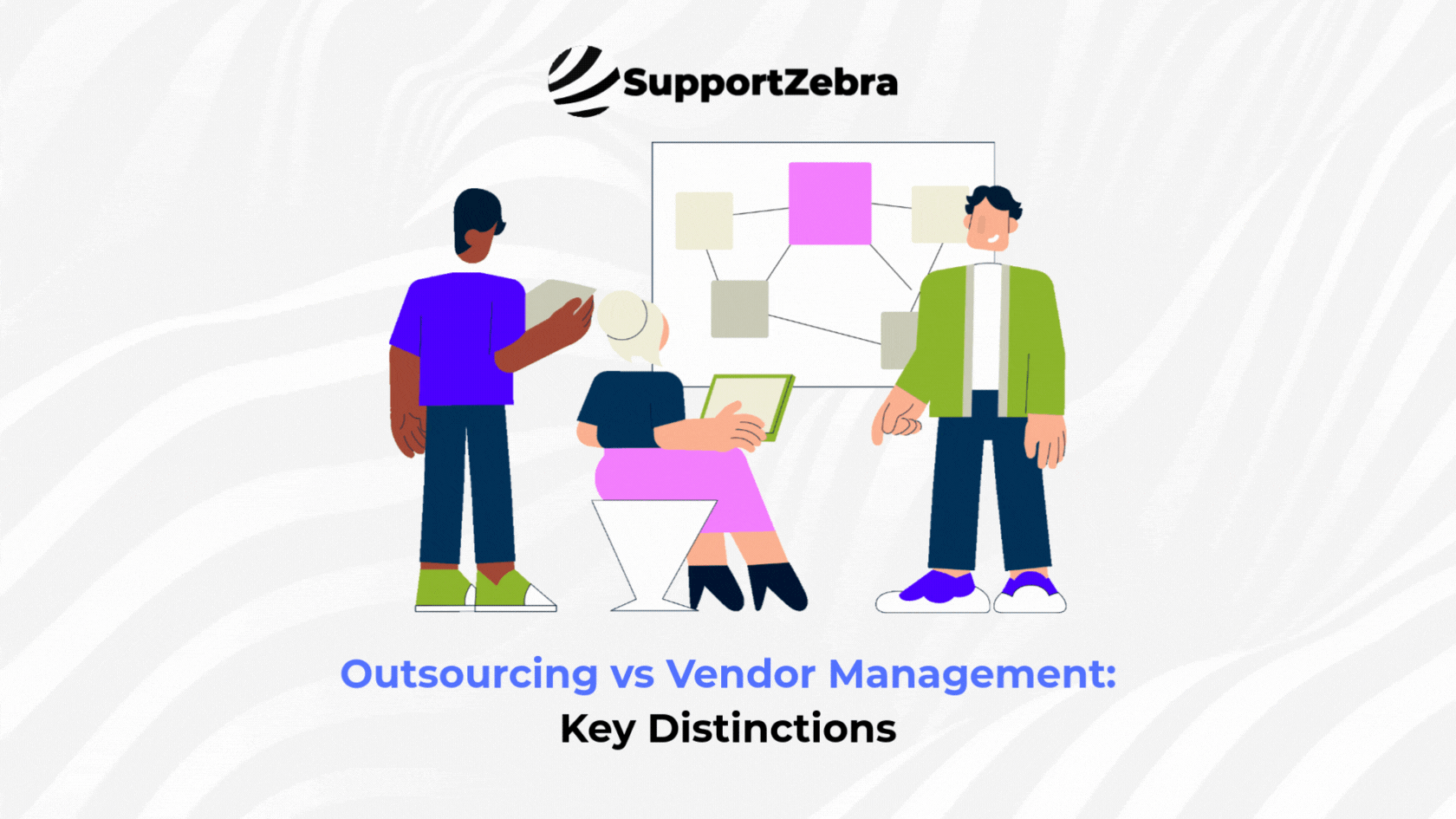Key Takeaways:
- Outsourcing focuses on delegating tasks to external experts, while vendor management centres on building and managing supplier relationships.
- Both strategies improve efficiency—outsourcing boosts flexibility, and vendor management ensures stability and innovation.
- Clear goals, communication, and performance metrics are vital for success in either approach.
- Aligning outsourcing and vendor management with business objectives reduces risks and drives long-term growth.
Outsourcing and vendor management both involve working with outside companies, but they serve different purposes.
Outsourcing means hiring another company to handle certain tasks. This lets a business focus on what it does best and often helps reduce costs. Vendor management focuses on managing relationships with suppliers to make sure they meet goals and provide good value.
Knowing the difference helps businesses work more efficiently, reduce risks, and build strong partnerships.
What is Outsourcing?
Outsourcing is when a company hires an outside team to do specific jobs. These jobs are usually not part of the company’s main work. Common examples include customer support, IT services, or data entry.
Outsourcing can save money by using skilled workers in areas with lower labor costs. It also saves time and resources, allowing internal teams to focus on growth and new ideas. Other benefits include easy scaling, access to expert skills, and better efficiency.
What is Vendor Management?
Vendor management is how a business works with its suppliers. The goal is to get the best value while reducing risks. This includes choosing vendors, negotiating contracts, tracking performance, and managing risks.
Good vendor management helps improve service quality, simplify purchasing, and build stronger partnerships. When done well, it can lower costs, improve efficiency, and ensure businesses get the products and services they need.
Key Differences in Focus
Outsourcing and vendor management support business success in different ways.
Outsourcing allows companies to pass tasks like customer service or IT support to experts. This helps save money and improves efficiency so teams can focus on key projects.
Vendor management focuses on building strong relationships with suppliers. It ensures vendors meet expectations, reduce risks, and adapt to changes in the market.
Both strategies are important. Outsourcing provides flexibility, while vendor management creates a reliable supply chain and supports innovation. Using both helps businesses stay competitive.

Best Practices for Each Approach
Below are simple tips to help you succeed with outsourcing and vendor management.
Tips for Successful Outsourcing
- Set Clear Goals
Decide what you want to achieve, such as saving money or improving efficiency. Share clear requirements, quality standards, and deadlines. - Choose the Right Partner
Work with a trusted outsourcing company that understands your needs and protects your data. - Build Strong Communication
Stay in regular contact to support teamwork and handle changes smoothly. - Maintain Quality Standards
Set clear quality rules and review work often to keep standards high. - Track Performance and Give Feedback
Check progress regularly and share feedback to keep work aligned with your goals.
Strategies for Effective Vendor Management
- Create Clear Communication Channels
Make sure everyone understands expectations, performance updates, and issues. - Build Strong Relationships
Trust and cooperation help improve service quality and encourage new ideas. - Set Performance Measures
Use clear performance indicators to measure results fairly. - Hold Regular Reviews
Review progress often to discuss wins, challenges, and improvements. - Manage Risks Early
Watch for issues like compliance or supply delays and address them before they grow.
Choosing the Best Approach for Your Company
Outsourcing and vendor management work best when used together.
Outsourcing lets experts handle tasks so your team can focus on core work. Vendor management ensures suppliers meet expectations and support your goals.
Knowing when to use each approach helps improve efficiency, reduce risk, and support long-term growth.
At SupportZebra, we provide flexible outsourcing services for SaaS and eCommerce companies. We support customer experience, back-office work, and more. Our services are designed to match your business goals and maintain high quality.
Working with SupportZebra can help lower costs and strengthen your brand. If you are exploring outsourcing or vendor management, contact SupportZebra today to see how we can help.

